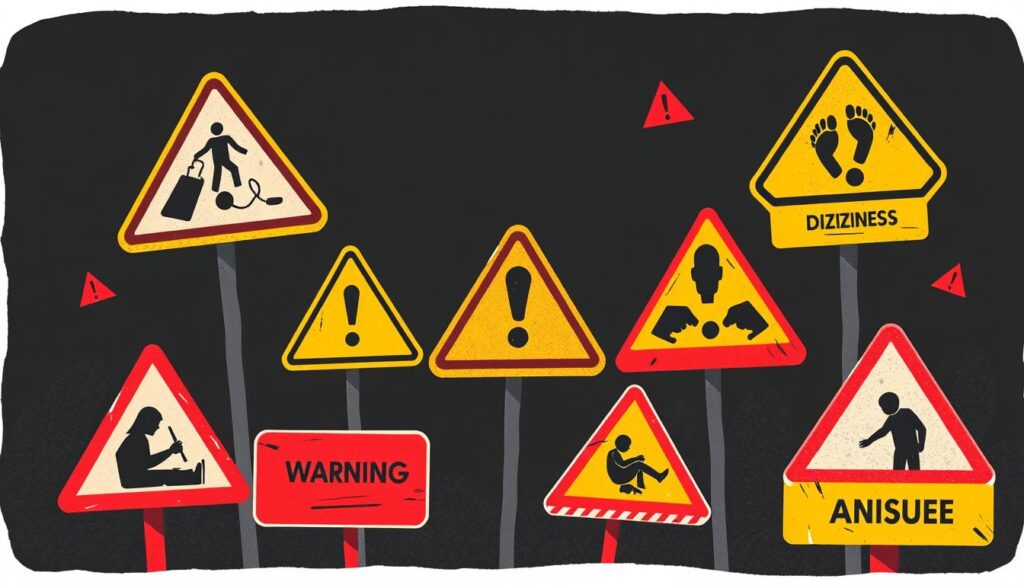COVID-19 changed my life, making treatment choices hard. I wondered about drinking while taking Paxlovid. Our journey is about knowing what’s safe during tough times.
This guide is about COVID-19 treatment and antiviral meds. We’ll look at Paxlovid and alcohol together. Our aim is to give you the info you need to care for your health.
Key Takeaways
- Understand potential risks of mixing alcohol with Paxlovid
- Learn about the impact of alcohol on COVID-19 treatment
- Recognize when to avoid alcohol during antiviral medication
- Prioritize your health and recovery process
- Consult healthcare professionals for personalized guidance
Understanding Paxlovid and Its Uses
The COVID-19 pandemic has changed how we treat illnesses. Paxlovid is a new medicine that fights viral infections. It’s a big step forward in treating COVID-19.
What is Paxlovid?
Paxlovid is a medicine for mild-to-moderate COVID-19. Pfizer made it. It has two parts: nirmatrelvir and ritonavir. These parts stop the virus from copying itself.
How Does Paxlovid Work?
Paxlovid targets the SARS-CoV-2 virus. Nirmatrelvir blocks a key enzyme the virus needs. Ritonavir makes the main drug last longer in the body. Knowing about paxlovid side effects is important.
Who Should Use Paxlovid?
- Patients at high risk of severe COVID-19
- Individuals with underlying health conditions
- People aged 65 and older
- Those with compromised immune systems
“Paxlovid offers a targeted approach to managing COVID-19 in vulnerable populations” – Dr. Emily Rodriguez, Infectious Disease Specialist
Patients should talk to doctors to see if Paxlovid is right for them. Your health history and current health matter a lot.
Alcohol and Its Effects on Health
It’s important to know how alcohol affects our bodies, like when taking covid-19 treatments like Paxlovid. Alcohol can change our health in many ways, from quick effects to lasting changes.

Overview of Alcohol Consumption
Alcohol is a common substance that can affect our health and mood. Its effects can be short-term or serious.
- Average adult consumption varies by demographic
- Alcohol impacts multiple organ systems
- Metabolic processing differs among individuals
Short-Term Effects of Alcohol
Alcohol quickly gets into our blood, causing immediate effects. These effects can be small or big.
| Alcohol Intake Level | Typical Short-Term Effects |
|---|---|
| Low Consumption | Relaxation, mild mood elevation |
| Moderate Consumption | Reduced coordination, impaired judgment |
| High Consumption | Significant cognitive impairment, potential health risks |
Long-Term Effects of Alcohol
Drinking alcohol over time can cause serious health problems. These effects can last long and affect how well treatments like Paxlovid work.
“Chronic alcohol use can compromise immune function and medication effectiveness” – Medical Research Journal
- Potential liver damage
- Increased cardiovascular risks
- Neurological system complications
- Potential immune system suppression
Knowing these effects helps us make better choices about drinking, even when we’re on medication.
The Interaction Between Alcohol and Paxlovid
It’s important to know how alcohol and Paxlovid might interact. This is key for those taking this antiviral medication. Understanding these interactions helps ensure the drug works well and keeps you healthy.
What Research Reveals About Alcohol and Paxlovid
Studies warn of caution when drinking alcohol with Paxlovid. The way Paxlovid is broken down in the body can change with alcohol. Here are some key points to remember:
- Alcohol might make Paxlovid less effective
- It could increase the risk of liver problems
- It might also make side effects worse
Possible Risks of Mixing Alcohol and Paxlovid
Doctors say to be very careful about drinking alcohol with Paxlovid. Mixing them can cause health issues:
- It might lower how well the drug is absorbed
- It could make side effects worse
- It might put extra stress on the liver
“Alcohol can interfere with how your body processes Paxlovid, potentially compromising your treatment’s success.” – Medical Research Institute
We urge you to talk to your doctor about these risks. Your health and treatment plan are unique. Getting advice tailored to you is crucial.
Recommendations for Alcohol Consumption with Paxlovid
When dealing with alcohol and covid-19 treatment, it’s important to be careful. Taking Paxlovid means knowing the risks and following guidelines. This ensures safety and helps in recovery.

Healthcare experts share key tips on managing alcohol and Paxlovid during treatment.
Essential Guidelines for Safe Consumption
- Consult your healthcare provider before consuming any alcohol
- Understand potential drug interactions with Paxlovid
- Monitor your body’s response to medication
Critical Situations to Avoid Alcohol
There are times when you should not drink alcohol while treating covid-19:
- During the first week of Paxlovid treatment
- If experiencing significant side effects
- When feeling physically weak or dehydrated
“Alcohol can compromise your recovery and potentially interact negatively with Paxlovid’s effectiveness” – Dr. Emily Rodriguez, Infectious Disease Specialist
Always put your health first and follow your doctor’s advice about drinking alcohol during Paxlovid treatment.
Personal Health Monitoring
Keep an eye on your symptoms and how you feel. Everyone reacts differently to medication. So, it’s important to watch your health closely during treatment.
Signs of Adverse Effects
When you’re on covid therapy, knowing about paxlovid side effects is key. Spotting warning signs is important for your safety. It helps you handle your treatment better and keeps you healthy.

Recognizing Symptoms of Interaction
While on Paxlovid, look out for signs of bad reactions. Here are the key ones to watch:
- Severe nausea or vomiting
- Unusual dizziness
- Intense headaches
- Extreme fatigue
- Unexpected muscle weakness
“Your body’s response to medication can vary, so staying vigilant is key.” – Medical Experts
When to Seek Medical Attention
Some symptoms need quick medical help, like when thinking about drinking alcohol with Paxlovid. Get urgent care if you have:
- Difficulty breathing
- Chest pain
- Severe allergic reactions
- Persistent high fever
- Unexplained skin rashes
Always talk to your healthcare provider if you’re not sure about any symptoms or possible interactions during your COVID-19 treatment.
Dos and Don’ts While Taking Paxlovid
Using Paxlovid for covid-19 treatment needs careful attention to safety and lifestyle. Our guide helps patients understand the best practices. This way, they can get the most out of the antiviral medication and stay healthy.
Safe Practices During Treatment
When using Paxlovid for covid-19 treatment, patients should follow these key guidelines:
- Take the medication exactly as prescribed by your healthcare provider
- Complete the full course of paxlovid safety protocol
- Stay hydrated and maintain proper nutrition
- Monitor your symptoms and report any unusual reactions
Lifestyle Choices That Support Recovery
Effective recovery during antiviral medication treatment involves strategic lifestyle decisions:
| Recommended Actions | Benefits |
|---|---|
| Get adequate rest | Supports immune system recovery |
| Maintain light physical activity | Promotes circulation and healing |
| Practice stress management | Enhances overall health and recovery |
“Proper care during covid-19 treatment can significantly improve recovery outcomes” – CDC Guidelines
We recommend talking to healthcare professionals to tailor your Paxlovid treatment. Every patient’s experience is different. Getting individual medical advice is key for the best recovery.
Expert Opinions on Alcohol and Paxlovid
Understanding the effects of alcohol on Paxlovid treatment is key. Our research shows what doctors and patients think about drinking while taking Paxlovid.
Medical Professional Perspectives
Infectious disease doctors warn against drinking alcohol with Paxlovid. They say it could make the treatment less effective. Here are some tips:
- Avoid alcohol during the entire Paxlovid treatment course
- Prioritize medication effectiveness and personal health
- Consult healthcare providers about individual risk factors
Patient Experiences and Real-World Insights
People taking Paxlovid have different experiences with alcohol. Most doctors suggest not drinking at all during treatment.
“Alcohol can potentially interfere with Paxlovid’s metabolization and reduce its therapeutic effectiveness,” states Dr. Emily Rodriguez, infectious disease expert.
| Alcohol Consumption Status | Potential Impact on Paxlovid | Recommended Action |
|---|---|---|
| Occasional Drinking | Potential Reduced Efficacy | Complete Abstinence |
| Heavy Drinking | High Risk of Interaction | Immediate Cessation |
| No Drinking | Optimal Treatment Outcome | Continue Current Approach |
Knowing how alcohol affects Paxlovid treatment is important. It depends on your health and what doctors say.
Conclusion: Our Approach to Alcohol and Paxlovid
Understanding Paxlovid safety is crucial when treating COVID-19. We’ve learned how to manage alcohol intake for better health. It’s important to remember that our choices affect treatment success and overall health.
Final Thoughts on Safe Alcohol Consumption
Drinking alcohol while taking Paxlovid can be risky. Our research shows it’s vital to talk to doctors before drinking. Staying away from alcohol is the best choice for those on Paxlovid.
How to Make Informed Choices
Knowing what to do is essential for good health decisions. We suggest talking to doctors, reading about medications, and focusing on health. By doing this, we can recover better and avoid problems.
Our goal is to prioritize health and success in treatment. By being informed and careful, we can face treatment with confidence and care.

